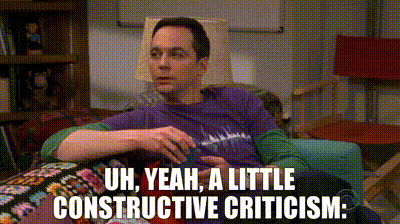10 Subtle Signs In Adulthood That Someone Had A Rough Childhood
We don't recognize a lot of our unhealthy responses to situations because they're automatic and subconscious. Most times, they're subtle – here are the signs that someone had a rough childhood.

Every time I think about how all of us have a past – some worse than others – I’m reminded of this quote by author Robert Anton Wilson: “Under the present brutal and primitive conditions on this planet, every person you meet should be regarded as one of the walking wounded. We have never seen a man or woman not slightly deranged by either anxiety or grief. We have never seen a totally sane human being.”
All you need is a pair of observant eyes to understand what Wilson is talking about: People's responses to certain situations reflect the wounds of past experiences. We often forget how our childhood greatly affects our development. The influences of our early years – from harsh and abusive parenting to getting bullied at school – undoubtedly have a profound impact on our adult lives. Our youth is the foundation upon which we build our identities, values, perceptions, and behaviors. It makes sense, then, how growing up in an environment full of positive experiences, love, and support during these formative years can lead to greater self-confidence and resilience in adulthood.
Conversely, adverse experiences can impact our emotional well-being, relationships, and behaviors in later life. Trauma, neglect, or inconsistent parenting can affect our ability to trust others and form healthy attachments. Regulating our emotions becomes a difficult task. We become people pleasers to shield ourselves from pain. Many of us who were wounded had to unlearn the negative thought patterns and habits to love ourselves and heal.
However, a big concern is that adults who had rough childhoods sometimes don’t realize how much it has affected them. And in the same way that our self-perception remains unchanged for years, our bodies hold onto traumatic experiences. For example, a child who was physically abused may automatically flinch when she hears a loud noise or when someone near her makes a sudden movement as an adult. Often, we don't recognize these "body memories" because they're automatic and subconscious. They can be subtle, and when they have been repeated for so long without thought, we don't recognize that they're actually abnormal reactions.
The Subtle Signs of a Rough Childhood
In an eye-opening thread on Reddit, someone asked: "What's a subtle sign that someone had a rough childhood?" It's a great question, and by knowing the signs, we can have more empathy toward the people who had a difficult upbringing. Likewise, if these behaviors are present in your own life, you can start working on healing these programmed patterns. Recognizing these signs within yourself can help you connect your present behaviors or responses to past experiences, offering a deeper understanding of yourself and your triggers.
Here are 10 subtle signs you should watch out for.
They Hardly Talk About Their Family
Most people like to share how they spent the holidays with their families. Meanwhile, abused and neglected individuals can't relate. They have a hard time talking about their family because they’re simply not close with them, and bringing up their past or their current relationship with their parents may conjure up painful emotions.
Involuntary Flinching
As I mentioned, if someone has experienced physical abuse or violence in the past, their body might have learned to anticipate harm in certain situations. Involuntary flinching or wincing can be a learned response that's been ingrained in them.
Habitually Apologizing
Those who were frequently reprimanded, yelled at, or criticized begin to believe that they are always at fault or responsible for any perceived wrongdoings – even if they haven’t done anything at all. This conditioning can lead to a tendency to apologize to avoid conflict or seek approval.
They’re Too Independent and Never Ask for Help
Being told as a teen that “you’re mature for your age” is not a flex. Sometimes, that independence was a result of neglect. When parents do not care for their kids, their children have no choice but to fend for themselves. They usually don’t ask for help, either, because they spent years suppressing their own emotional needs and desires.
Overcompensating with Laughter During Conversations To Appease Others
People from difficult backgrounds usually grew up in environments where tension, conflict, or discomfort were common. Thus, humor and laughter become a coping mechanism – it’s an easy way to diffuse tension and ease uncomfortable situations. It’s a sign of a people pleaser.

A Vague Memory of Childhood
Those who grew up in a tough household learned to dissociate or become maladaptive daydreamers as a coping mechanism. They have to detach themselves from reality to defend themselves against the overwhelming pain they have to endure. This detachment can create a gap in memory or a feeling of disconnection from the events that happened in the past.
Negative Self-Talk and Insecurity
If you or a loved one were frequently told that you were worthless, that repetition eventually convinces us it's true. It’s vital that we catch these moments of negative self-talk and replace them with positive affirmations instead.
Constant Analysis of Non-Verbal Cues
When you’re living in an environment of people who are expected to blow up at any moment, you’re forced to learn their behavioral cues – that way, you can act before they do.
Crying When They Express Themselves
Neglectful adults tell children to “toughen up” or to “stop crying.” Growing up in such a sterile environment where emotional expression was discouraged and dismissed leads to a lack of validation for your feelings. As a result, when a wounded soul finally gets the chance to express themselves, they experience a flood of emotions, causing tears.
Getting Really Stressed When Hearing Constructive Criticism
When people grow up having high expectations placed on them or are punished for minuscule mistakes, they may learn to associate criticism with feelings of rejection and unworthiness. Constructive criticism feels you’re being told that you’re a failure, and it triggers fears of negative consequences – resulting in heightened stress responses.

Addressing these signs can reduce stress, increase self-awareness, improve self-esteem, and create inner peace. If this article resonates with you, you can learn how to heal your inner child here.
Evie deserves to be heard. Support our cause and help women reclaim their femininity by subscribing today.